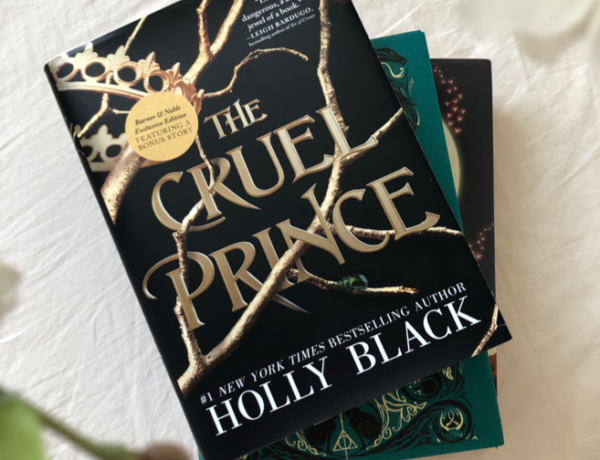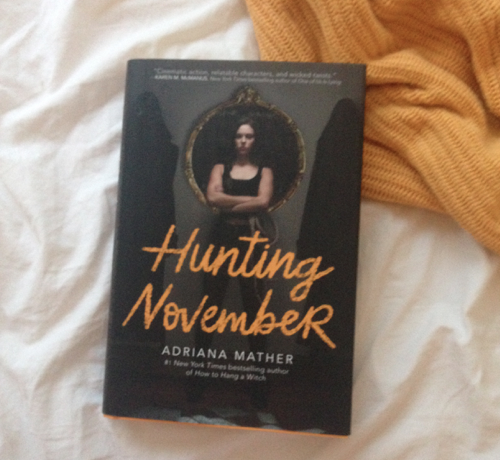Last Edited on August 4, 2024 by Sarah
“Marianne answers the door when Connell rings the bell” (Rooney 1). The very first line sets the scene for Rooney’s second novel, Normal People. In and of itself, the line isn’t painfully anecdotal or tragically cruel. Take the line out of the book and we learn nothing at all. In fact, it doesn’t grip us like one would expect a book to do. So, what if one character opens the door for another? Who are they anyway?
However, by the end, we readers understand this first interaction would kickstart the opening of doors for both Marianne and Connell. A door they’d find themselves intertwined in for a few passionate years. Perhaps that is just it, their relationship was a door that was opened and by the end of the novel, it’s screaming to be closed. Or perhaps the door was superficial, merely a means for two characters to temporarily bond over their shared injustices. Or maybe it was a door that’d forever be destined to remain open. More importantly, was it even love?
Marianne and Connell’s story can be split into three parts. Their relationship during high school (Feb – April ‘11), at university (Feb – May ‘12), and outside of university (July ‘14 – Feb ‘15).
We start with the cliché of all high school love-stories. A jock-like male lead contrasted to the misunderstood outcast female lead. Yet, Rooney dives deeper than that, no, she submerges herself in this cliché, highlighting what led to the two getting these seemingly unremovable roles and what lies underneath it. The same way she presents the contrast at their school, Rooney provides another contrast that lies outside of it. Marianne is of a wealthy family whose father recently died. Connell, the result of a teen pregnancy, is poor and has always lived in a single-mother household. Connell’s mother Laurianne is a housemaid for Marianne’s family. And even though Connell is well liked by his school mates, he feels just as secluded as Marianne, who has no friends and is in an abusive household. To describe this interesting dynamic, Susan Balée of the Hudson Review says, “Connell is a conformist, and Marianne can’t, or won’t conform. Nevertheless, they are drawn to each other.” At first the two feel an unexplainable attraction which will eventually lead to the first time Marianne and Connell decide to form a relationship.
Connell and Marianne’s relationship begins as a way for them to relieve themselves of the sexual desires they have for one another. Yet, the relationship has one reservation coming from Connell, that it’s not a romance, it’s more of a secret lust. As it stood, Connell benefited more from the relationship because he was able to convince Marianne to keep it hidden. In a way, both believe they’re “bad” so they take refuge within the other, glad there’s something seemingly worse then what they are. NPR critic Linda Holmes argues it is “a love story. Not in the linear sense, where the idea is to see how where the shuffling will end – with them together or apart, or getting married to each other, or to others.” As readers, we don’t know what’s to come of the tumultuous relationship because it’s never-ending in the sense that the characters always make their way back to each other. Each time, they get older, change slightly but are always able to return to their relationship, exactly how they started it in high school. Both Marianne and Connell seek comfort and acceptance within each other in their relationship to shield from the constraint of friends, family, and society.
As the relationship progresses in high school, we begin to see the power dynamic between the two. Marianne holds Connell to a higher pedestal, believing he’s much smarter (& liked) than her. Dwight Garner of the New York Times recognizes the strict dichotomy of the pair’s situation. He acknowledges their bond is “intense” and present but is plagued by a sort of power imbalance. Garner writes, “[Connell] betrays [Marianne] at a crucial moment, a moment that marks the original sin of their long friendship” in response to Connell acknowledging he could essentially do whatever he wanted to Marianne, and she’d still stay. Garner’s choice to write “original sin” implies that the relationship further down is expecting more sins. His usage of “long friendship” essentially declares his position that they’re relationship isn’t really love? Garner doesn’t view it as love but rather believes, “they merely break each other’s hearts over and over again”. Is that love to you? Whether or not, you believe Marianne and Connell were in love during high school, its discomforting to witness Connell thinking, “She would have lain on the ground and let him walk over her body if he wanted, he knew that” (Rooney 28) or “he could hit her face, very hard even, and she would just sit there and let him” (Rooney 77), even though these thoughts never physically materialize.
One would often think that with being in love, comes saying, “I love you”. It’s said for the first time by Connell after Marianne reveals her father used to hit her when they’re in high school. For Marianne, hearing this marks the first time she believes she was lovable and to her “now she has a new life, of which this is the first moment…the beginning of her life” (Rooney 35). In Connell’s POV, it’s revealed that, “he didn’t know what to say…It just happened, like drawing your hand back when you touch something hot…Was it true? He didn’t know enough to know that” (Rooney 38). It conjures up a strange feeling, one of perhaps a realistic young adulthood but also a feeling that again Marianne needs Connell more than him, her. At the start of their relationship Connell very much controls the narrative (whether he intentionally wants to or not). Rooney writes, “It was in Connell’s power to make her happy. It was something he could just give to her, like money or sex” (77). It’s worth noting throughout the course of the book, Marianne never says “I love you” to Connell, though she always remains by his side, be it as a partner or friend. Marianne does once say, “I like you so much,” which visibly impacts Connell, but she still isn’t moved enough to say the three words.
Eventually, Connell breaks Marianne’s heart by going to his prom with another girl, for fear that he’d be ridiculed if he brought Marianne. The two break connection for a few months. As they go to university the roles switch, marking phase two of the relationship. Marianne, in a new relationship asks herself after seeing Connell, “why does she go after [Connell] like this all the time, pressing him for something? Does she have to be her old desperate self around him always?” (Rooney 107). Even as Marianne begins to provide for Connell the same way he once did for her, she is unable to rid herself of her own self-flagellation. She invites Connell around and helps him when he is robbed. Marianne, at the time, even has a boyfriend. Despite this all, Marianne believes there is something wrong with her and desperately wishes to be like normal people. She says, “I don’t know why I can’t make people love me” (Rooney 128) and “There’s always been something inside her that men have wanted to dominate, and their desire for domination can look so much like attraction, even love” (Rooney 135).
At the start, Connell, despite his attraction to Marianne, at the center of it all feels pity. In Carricklea, no one values Marianne’s high social status, rather valuing the way she carries and puts herself together. When they’re at university the opposite occurs, where Marianne is well-liked in university primarily because of the money she possesses. With this power, she feels the need to often include Connell in her friend group and their going abouts. Neither relationship in either setting saves the character from the discomfort they’re feeling. Marianne gets so harshly bullied at school, even while having the comfort of a private relationship, she leaves. Connell, understanding of the fact that he’ll never measure up to Marianne’s wealth too finds himself slowly withdrawing his presence from her friend group. The end of phase two of the relationship comes when Connell is unable to ask Marianne for a place to stay because he’s too broke, thus breaking off connection.
In phase three, we see the deterioration of both characters’ physical and emotional well being. As readers, we’re constantly questioning whether this deterioration comes from being in a relationship with one another, being out of it or neither. On an emotional level, Marianne and Connell know each other best, like no other. Yet, Marianne finds herself in relationships with increasingly abusive boyfriends while Connell finds himself constantly searching for a perfect girl to make him perfect. Connell, with his perfect girlfriend, falls into a severe depression started after the death of a close friend from high school. His girlfriend is unable to comfort him during these times. Connell feels like his whole world is collapsing because everything he did in high school was all for nothing. Everyone secretly knew about his relationship with Marianne and now without his friend from high school, everything about his youth is gone, and for that reason he mourns. He mourns the loss of his belief that he had to be accepted. Marianne, with her ideal boyfriend, is sexually taken advantage of and emotionally abused. She soon realizes, however, that her wanting of a toxic relationship is unhealthy and unfulfilling. Their past partners reflect their deepest desires for love, but ultimately cannot provide what they want. They’re both torturing themselves in these other relationships and can’t move past the one they used to have together. Is this cruel torture a part of moving on from a first love? Or just a love? Eventually, both characters in this phase shed an old perspective they used to have, leading to their third and final reconnection. This also highlights their codependence for one another which forces us to question whether this is love.
Throughout their own respective relationships with other people, both Marianne and Connell ask the other if they’re in love with their partner. Marianne does it when asking about Connell’s girlfriend, Helen and Connell asks back in regards to Marianne’s abusive boyfriends. It’s a bit confusing to read this because there had never been a formal acknowledgment of the love Marianne and Connell had for each other, so why would they even care about love, a concept their relationship hasn’t known? Furthermore, for Connell “love” is something he never understands. With his girlfriend Helen, professing his love, “never seemed possible before, not remotely, but in fact it’s easy” (Rooney 111). Yet soon after this self-proclaimed “vast rush of love” for Helen, he begins thinking about Marianne and his regret for his inability to proclaim his feelings. Marianne never says “I love you” to anyone because deep down, she is unable to love herself.
During the entirety of their relationship, Marianne and Connell give in exchange for something. Annalisa Quinn of The Atlantic says, “The book suggests that people can use their advantages for one another – that personal qualities, abilities, status, and other advantages can act like wealth or goods in a socialist society, for common benefit.” Why does love have to come at a cost? Maybe that is just a natural part of it. Is it love if it’s predisposed to be doomed? Both Marianne and Connell are able to reconcile that they’re not the same and will never be. In this topic, Quinn proclaims, “Normal People proposes that a merciful and just country can still exist, even if only in the space between friends.” Quinn acknowledges that maybe Connell and Marianne depend on themselves more as friends and rejects the idea of them lovers. To Quinn that’s the resolution to the story.
The novel ends with Connell accepting an offer to study in New York. By this point, the root of their connection has been distorted slightly (as they no longer feel the discomfort that once plagued them). Deep down, both question whether they’re going to be able to seamlessly reunite and love one another after Connell’s return. Marianne recounts this, thinking, “He probably won’t come back…Or he will, differently. What they have now they can never have back again…the pain of loneliness will be nothing to the pain that she used to feel, of being unworthy” (Rooney 184). In my interpretation of the novel, I believe Marianne and Connell won’t reconnect as lovers. The third and final phase of their relationship wraps up nicely and both characters have “gotten” what they needed out of the relationship (to grow). They’ve done that now and are ready to exit the door they entered at the very start.
To answer whether it’s love or not, Lauren Collins of The New Yorker wrote, “The point is not so much the plot as the characters, and the heady relationships in and out of which they move ‘like figure-skaters, improvising their discussions so adeptly and in such perfect synchronization that it surprises them.’” For Collins, the book is a story of the relationships between Marianne and Connell. That’s all it serves to do, to depict their relationships and how they always come back to each other, disregarding the fact about whether it is love.
Normal People is real and raw, which is exactly what a coming of age novel should be. Even though as a reader, we want Connell and Marianne to work out, we also understand it cannot last. Their relationship is one full of hypotheticals, words not spoken, and actions not received, it’s a classic love story for the ages.




No Comments